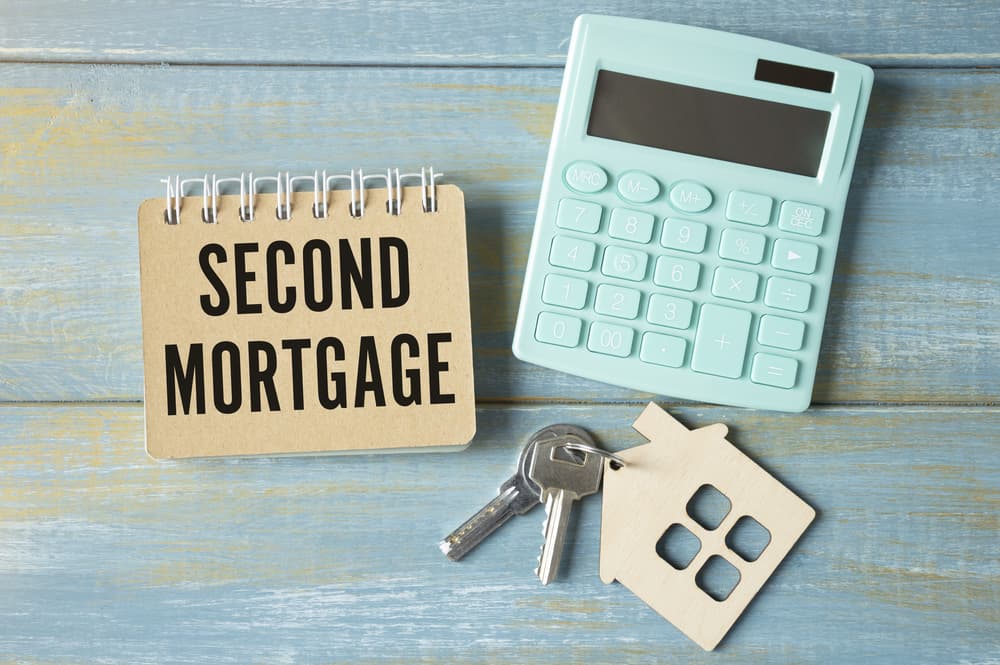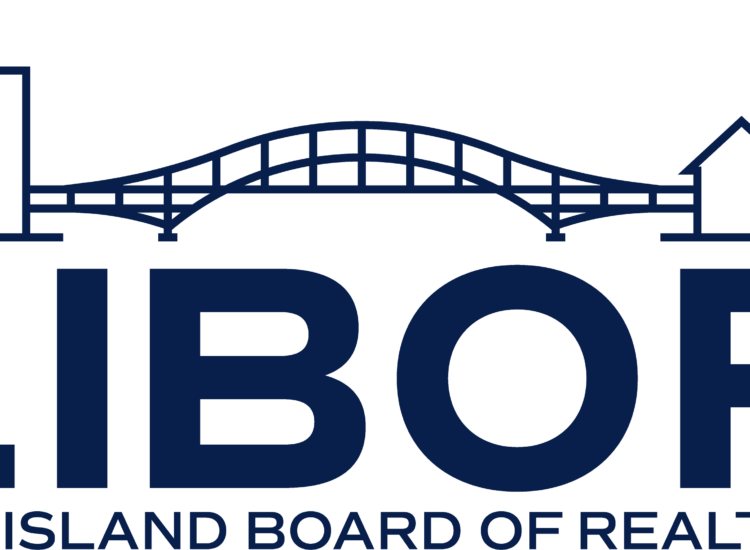As a real estate investor, navigating the complexities of financing options is crucial to building and maintaining a robust investment portfolio. One tool that can significantly enhance your investment strategy is the second mortgage. Understanding the nuances of second mortgages can empower you to leverage additional capital effectively, enabling you to seize new opportunities and maximize returns.
Toc
- 1. Introduction to Second Mortgage
- 2. Pros and Cons of Second Mortgages for Real Estate Investors
- 3. Second Mortgage vs. Home Equity Line of Credit (HELOC)
- 4. Case Studies
- 5. Eligibility Criteria for Second Mortgages
- 6. Considerations Before Applying for a Second Mortgage
- 7. Managing Second Mortgage Debt
- 8. Conclusion
Introduction to Second Mortgage

A second mortgage is a loan that is secured against the equity in your property, in addition to the primary mortgage. It allows you to borrow money based on the value of your home, and it can be used for various purposes such as home renovations, debt consolidation, or investing in other properties.
What is a Second Mortgage?
A second mortgage is a loan taken out against a property that already has an existing mortgage. It allows property owners to tap into the equity of their real estate assets without refinancing the primary mortgage. For real estate investors, a second mortgage can be a strategic way to access funds for property acquisitions, renovations, or other investment-related expenses.
Types of Second Mortgages
There are two types of second mortgages: a home equity loan and a home equity line of credit (HELOC). A home equity loan provides a lump sum of cash with a fixed interest rate and repayment term. On the other hand, a HELOC allows you to access funds as needed up to a predetermined credit limit and typically has an adjustable interest rate.
Purpose of a Second Mortgage for Real Estate Investors
The primary purpose of a second mortgage for real estate investors is to unlock the capital tied up in existing properties. This additional financing can be used to:
- Purchase additional investment properties.
- Fund significant renovations or upgrades.
- Consolidate higher-interest debts.
- Cover unexpected expenses related to property management.
- Diversify investment holdings and reduce risk.
Pros and Cons of Second Mortgages for Real Estate Investors

Like any financial instrument, there are both advantages and disadvantages to using a second mortgage as part of your real estate investment strategy. It is crucial to consider these carefully before deciding if a second mortgage is the right choice for you.
Pros
- Access to additional capital: A second mortgage can provide access to significant amounts of capital, allowing real estate investors to take advantage of opportunities that may not have been possible otherwise.
- Tax deductions: The interest paid on a second mortgage may be tax-deductible if the funds are used for investment purposes. This can result in significant savings for investors.
- Flexibility: With a HELOC, you only pay interest on the amount you borrow, providing more flexibility and control over your cash flow compared to a traditional loan with fixed monthly payments.
Cons
- Higher risk: As a secured loan, a second mortgage puts your property at risk if you are unable to make timely payments. This can significantly impact your credit score and potentially lead to foreclosure.
- Additional costs: Second mortgages come with additional fees, such as appraisal and closing costs, that can add up quickly. It is crucial to factor these expenses into your overall investment strategy.
- Interest rates: Second mortgages often have higher interest rates compared to primary mortgages. This means you could end up paying more in interest over the life of the loan.
Benefits of Second Mortgages for Real Estate Investors
Second mortgages offer multiple benefits that can make them an attractive option for real estate investors:
- Increased Purchasing Power: By tapping into the equity of an existing property, investors can generate a substantial amount of capital to finance new property acquisitions. This allows them to expand their portfolios more rapidly without needing to liquidate other assets.
- Leveraging Equity for Renovations: With access to additional funds, investors can undertake major renovations or improvements on their existing properties. Enhancing property value not only increases rental income potential but also ensures higher resale value in the future.
- Financial Flexibility: When used strategically, a second mortgage provides investors with the flexibility to manage cash flow and align investments with market conditions. For instance, accessing funds through a HELOC as needed helps in maintaining liquidity while also being prepared for unforeseen expenses.
- Debt Consolidation: Investors can use second mortgages to consolidate high-interest debts. By doing so, they can reduce their overall interest burden and simplify their financial management with a single, more manageable repayment plan.
- Tax Advantages: Interest payments on a second mortgage may be tax-deductible, especially when the loan is used for investment purposes. This can result in significant tax savings, enhancing the overall profitability of the investments.
By leveraging these advantages, second mortgages can be a powerful tool in optimizing a real estate investment strategy, contributing to growth, sustainability, and financial success.
Second Mortgage vs. Home Equity Line of Credit (HELOC)

When evaluating the best financing option for real estate investments, it’s crucial to understand the differences between a second mortgage and a home equity line of credit (HELOC). Both options allow investors to access the equity in their properties, but each has distinct features that may make one more suitable than the other depending on individual circumstances.
Second Mortgage
A second mortgage provides a lump sum of money that is repaid over a fixed term with a predetermined interest rate. This predictable repayment structure can be beneficial for investors who prefer stability and certainty in their cash flow planning. Knowing the exact amount of their monthly payments allows investors to budget more effectively and avoid surprises. However, because the interest rate is fixed, it may be higher than the rates available with a HELOC, particularly if interest rates decline over time.
Home Equity Line of Credit (HELOC)
A HELOC functions more like a credit card, offering a revolving credit line that you can draw from as needed up to an approved limit. This flexibility can be particularly advantageous for real estate investors who face unpredictable expenses or who wish to take advantage of new opportunities as they arise. Payments on a HELOC are based on the amount borrowed, and interest rates are usually variable, which can be both a benefit and a risk depending on market conditions. While this can provide greater flexibility and lower initial costs, the variable interest rates mean that future payments could increase if interest rates rise.
Key Differences to Consider
- Loan Structure: Second mortgages provide a lump sum with fixed repayments, while HELOCs offer a revolving credit line with variable repayment amounts and interest rates.
- Interest Rates: Second mortgages generally have fixed interest rates, providing stability, whereas HELOCs often have variable rates, which can fluctuate over time.
- Flexibility: HELOCs offer more flexibility since you can draw funds as needed, making them ideal for ongoing projects or unexpected expenses.
- Costs and Fees: Both options come with associated costs, such as appraisal and closing fees, but these can vary. It’s essential to compare the total cost of borrowing when deciding between these options.
- Risk: Both second mortgages and HELOCs put your property at risk if you default on the loan, but the level of risk may vary depending on the loan terms and interest rate volatility.
Choosing between a second mortgage and a HELOC depends on your investment strategy, financial situation, and risk tolerance. Understanding the pros and cons of each will help you make an informed decision that aligns with your investment goals.
Eligibility, Repayment, and Usage
Second Mortgage:
- Eligibility: Requires sufficient equity in the property and a good credit score.
- Repayment: Fixed monthly payments over a set term, similar to the first mortgage.
- Usage: Lump sum provided at the loan’s inception, suitable for large, one-time expenses.
HELOC:
- Eligibility: Also requires sufficient equity and a good credit score.
- Repayment: Variable payments based on the amount drawn and the interest rate at the time.
- Usage: Revolving line of credit that can be drawn upon as needed, ideal for ongoing expenses.
Advantages and Disadvantages for Real Estate Investors
Second Mortgage:
- Advantages: Predictable payments, fixed interest rate, good for large investments.
- Disadvantages: Higher interest rates compared to first mortgages, immediate repayment obligations.
HELOC:
- Advantages: Flexibility in borrowing, interest-only payments during the draw period.
- Disadvantages: Variable interest rates, potential for higher long-term costs, requires discipline to manage effectively.
Case Studies

To better understand the impact of second mortgages and HELOCs on real estate investments, let’s look at two hypothetical case studies:
Single-Family Home Renovation:
A real estate investor in a competitive market secured a second mortgage to purchase and renovate a single-family home. After six months of extensive renovations, the property’s value increased significantly. The investor refinanced both the first and second mortgages into a traditional mortgage, freeing up the second mortgage for future investments.
Commercial Property Expansion:
A commercial property investor used a second mortgage on a multi-unit apartment building to fund a down payment on another property. The rental income from the first property, combined with the equity from the second mortgage, provided the financial stability needed to qualify for the second property, thus expanding the investor’s portfolio.
Short-Term Financing Strategy:
An investor utilized a second mortgage on a rental property to invest in the stock market during a period of low mortgage rates. The rental income covered both the first and second mortgage payments. The profits from the stock investments were used to pay off the second mortgage within a short timeframe, demonstrating how second mortgages can serve as short-term financing solutions.
Eligibility Criteria for Second Mortgages

Lenders consider several factors when assessing eligibility for a second mortgage:
Factors Considered by Lenders
- Equity in the Property: Sufficient equity is crucial as it serves as collateral for the loan.
- Credit Score: A good credit score indicates reliability and reduces the lender’s risk.
- Debt-to-Income Ratio: A lower ratio suggests that the borrower can manage additional debt.
- Employment and Income Stability: Consistent income and employment history are favorable indicators.
- Property Value: Lenders may also consider the property’s appraised value when determining eligibility.
- Loan-to-Value Ratio: This ratio represents the amount of debt compared to the total value of the property. A lower ratio is more favorable for approval.
Improving Eligibility
Real estate investors can improve their eligibility for a second mortgage by:
- Increasing Equity: Paying down the primary mortgage or enhancing property value through renovations.
- Maintaining a Strong Credit Profile: Keeping credit scores high by managing debt responsibly.
- Reducing Debt: Lowering existing debt levels to improve the debt-to-income ratio.
- Documenting Income: Providing clear and comprehensive documentation of income sources.
- Showing Property Cash Flow: Demonstrating rental property cash flow can improve eligibility for investors.
Considerations Before Applying for a Second Mortgage

Before applying for a second mortgage, real estate investors should consider several factors:
Interest Rates and Repayment Terms
- Interest Rates: Typically higher than first mortgages, reflecting the increased risk to lenders.
- Repayment Terms: Fixed terms necessitate regular payments, impacting cash flow management.
Potential Risks
- Foreclosure Risk: Defaulting on a second mortgage can lead to foreclosure, jeopardizing investment assets.
- Market Fluctuations: Property value declines can reduce equity, complicating refinancing or resale efforts.
- Increased Debt Load: Balancing multiple mortgages requires disciplined financial management.
Alternatives to Second Mortgages
- Cash-Out Refinancing: Replacing the current mortgage with a new, larger one and using the excess cash for investments.
- Personal Loans or Lines of Credit: Unsecured options without property collateral requirements.
- Partnerships or Joint Ventures: Partnering with other investors to share the financial burden and risk.
Financial Health of Investment Portfolio
Evaluate how a second mortgage will impact your overall financial health:
- Cash Flow: Ensure rental income or other revenue streams can cover additional debt payments.
- Investment Returns: Calculate the potential return on investment (ROI) from using the second mortgage.
- Risk Management: Diversify investments to mitigate risks associated with increased leverage.
Managing Second Mortgage Debt


Effectively managing second mortgage debt requires a strategic approach to ensure financial health and maximize investment returns. Here are several strategies to consider:
Monitoring Cash Flow
Maintaining a detailed cash flow analysis is crucial. Regularly track rental income, expenses, and mortgage payments to ensure your property generates sufficient income to cover all obligations. By staying on top of your cash flow situation, you can avoid unexpected shortfalls and plan for any necessary adjustments.
Establishing an Emergency Fund
An emergency fund can provide a financial cushion to handle unforeseen expenses or market downturns. Set aside funds equivalent to a few months’ mortgage payments to cover any potential gaps in rental income or other unexpected costs. This reserve can help you manage second mortgage obligations without jeopardizing your investment portfolio.
Refinancing Opportunities
Keep an eye on interest rate trends and refinancing opportunities. If market conditions improve, refinancing your second mortgage might help lower interest rates and monthly payments, easing your financial burden. Evaluate refinancing costs and benefits to ensure it aligns with your long-term investment strategy.
Prioritizing Debt Repayment
Consider prioritizing the repayment of your second mortgage to reduce overall debt load. Making extra payments or directing additional funds toward the second mortgage can shorten the loan term and save on interest costs. This approach requires disciplined financial management but can significantly improve your financial position over time.
Professional Advice
Consulting with financial advisors or mortgage experts can provide valuable insights tailored to your specific situation. Professionals can help you identify the best strategies for managing debt, optimizing cash flow, and achieving your investment goals. Their expertise can be invaluable in making informed decisions and navigating complex financial landscapes.
Maintaining a proactive approach to managing your second mortgage debt will help you safeguard your investment portfolio and sustain long-term financial health. By carefully monitoring cash flow, establishing an emergency fund, exploring refinancing options, prioritizing debt repayment, and seeking professional advice, you can effectively manage second mortgage obligations and position yourself for future success.
Conclusion
Second mortgages can be an invaluable resource for real estate investors looking to expand their portfolios and maximize returns. By understanding the intricacies of second mortgages, comparing them to other financing options, and carefully managing associated risks, investors can strategically enhance their investment capabilities.
As you consider incorporating second mortgages into your real estate investment strategy, remember the importance of thorough planning and disciplined financial management.
For more insights and personalized advice, feel free to connect with our team and share your experiences or questions related to second mortgages. Unlock the potential of your real estate investments with informed decisions and strategic planning.






